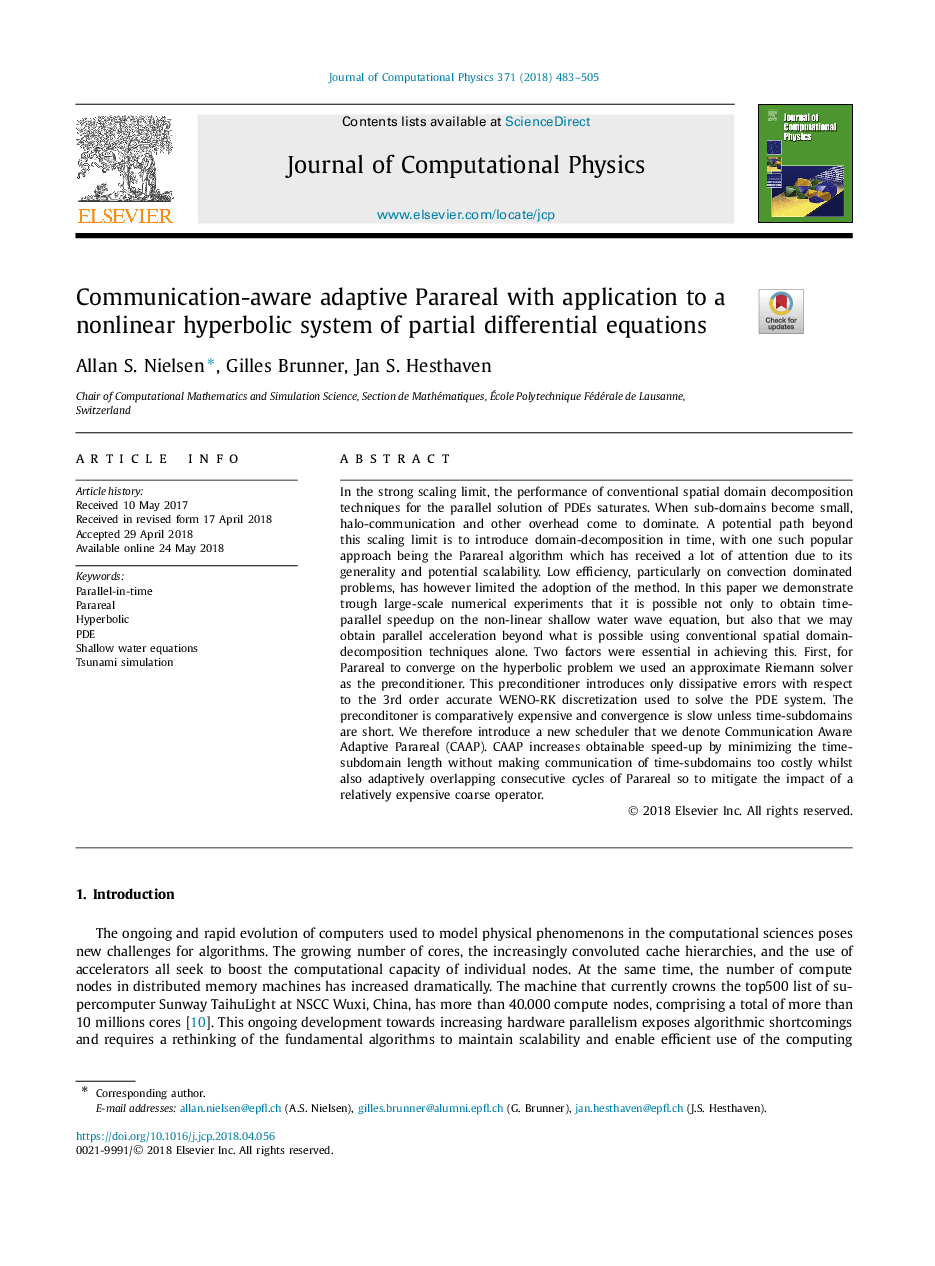| Article ID | Journal | Published Year | Pages | File Type |
|---|---|---|---|---|
| 6928672 | Journal of Computational Physics | 2018 | 23 Pages |
Abstract
In the strong scaling limit, the performance of conventional spatial domain decomposition techniques for the parallel solution of PDEs saturates. When sub-domains become small, halo-communication and other overhead come to dominate. A potential path beyond this scaling limit is to introduce domain-decomposition in time, with one such popular approach being the Parareal algorithm which has received a lot of attention due to its generality and potential scalability. Low efficiency, particularly on convection dominated problems, has however limited the adoption of the method. In this paper we demonstrate trough large-scale numerical experiments that it is possible not only to obtain time-parallel speedup on the non-linear shallow water wave equation, but also that we may obtain parallel acceleration beyond what is possible using conventional spatial domain-decomposition techniques alone. Two factors were essential in achieving this. First, for Parareal to converge on the hyperbolic problem we used an approximate Riemann solver as the preconditioner. This preconditioner introduces only dissipative errors with respect to the 3rd order accurate WENO-RK discretization used to solve the PDE system. The preconditoner is comparatively expensive and convergence is slow unless time-subdomains are short. We therefore introduce a new scheduler that we denote Communication Aware Adaptive Parareal (CAAP). CAAP increases obtainable speed-up by minimizing the time-subdomain length without making communication of time-subdomains too costly whilst also adaptively overlapping consecutive cycles of Parareal so to mitigate the impact of a relatively expensive coarse operator.
Related Topics
Physical Sciences and Engineering
Computer Science
Computer Science Applications
Authors
Allan S. Nielsen, Gilles Brunner, Jan S. Hesthaven,
